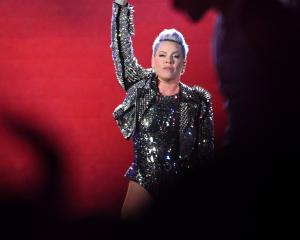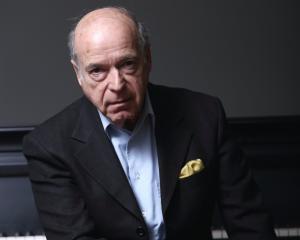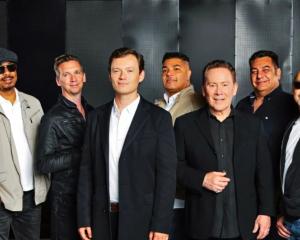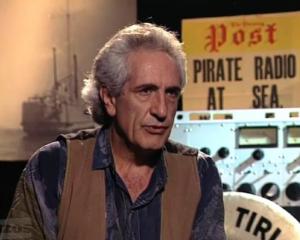The boys from Kora admit it.
With the release of their second album, the ingenious, ambitious and, you might even say, peculiar pop masterpiece Light Years, it was a little like starting over again.
"Or starting afresh, perhaps," smiles Francis Kora, who, along with his older brothers Laughton, Brad and Stuart, and producer and friend Dan McGruer, formed the band back in the early 2000s.
It's taken a long time for the new album to surface after their genre-mashing, ground-breaking self-titled debut from 2007.
Despite its challenging aspects, bringing together everything from reggae and soul to metal and techno, that first album was embraced by the masses, selling more than 30,000 copies.
Their popularity was confirmed after a mid-afternoon set on the main stage of the 2010 Big Day Out, which was the highlight of the festival.
But it's fair to say they have lost some of the traction they built up, even though Light Years debuted strongly at No2 (behind Taylor Swift's Red) and still sits in the top 10.
And between albums, although they have continued to play live, there have been other distractions, including a change in management and a number of side projects ranging from musical theatre to virtuoso metal band Heavy Metal Ninjas.
So it's not as if Kora have been idle, and Francis Kora and McGruer say the band looked at Light Years as a chance to reinvent themselves and take their music where it's never been before - in terms of both popularity and sound. And that takes time.
"We've always wanted more people to listen to us and I think that's what we really tried to achieve with this album," says McGruer. It is a futuristic pop gem, courtesy of songs such as spectral nursery rhyme Little Star and the banging Hit the Wall.
The problem - and the main reason the album took so long - was that for much of the recording process, not even the band knew the musical direction they were headed in.
"We didn't really know what the songs were about. There were no rules. It was a really open way of creating and I guess that comes through in a lot of the songs that are experimental," continues McGruer.
"But it's subconscious because we don't really plan to write commercially, or write underground music, it just is what it is. But it's taken us years to find that common ground to be able to really start going forward and to know what direction we're going in."
Kora proudly wear their influences on their sleeves, from Justin Timberlake's Sexy Back stomp and the '80s synth pop of Visage and Mr Mister ("the hook from Broken Wings was actually moulded into Dropdead Killer," says McGruer like a mad musical wizard) to the heavy weirdness of bands such as avant-garde metallers Mr Bungle and underground hip-hop soul.
"We mash it all together and blend it up. It does have that commercial side but it does have that underground element and heaviness to it. That's where we come from, and that just comes through in our music.
We don't really think about it; if it's a sound that we like, we use it," McGruer says.
The band makes music that shouldn't work but does. And because it's so strange and unique the challenge is to make it palatable for people, although it pays not to think too much about it, Kora says.
"That is where some of the artistry comes in, moulding it so it does make sense.
"For example, originally Bad Thing was a metal track but now it's taken on a sort of underground hip-hop feel. And when we were younger, and you see this a lot in young bands, you're just really hungry and everything is crammed into a song, but now we just strip all the layers away and just get to the essence of what you're trying to say."
McGruer: "Yeah, we're just a little bit older and wiser and our style is just a little bit more refined. With the first album, it was like, 'Who the hell are we?What are we doing?'."
Kora: "But the Mr Bungle days are a little less obvious now." "Yeah," agrees McGruer, "we still like Mr Bungle but we also like commercial pop music. And we're kids from the '70s and '80s so we've got that old-school style about us, and that classic songwriting style, but we try and bring that through in modern-day music."
In case you haven't noticed, Kora are music geeks. And you get the feeling McGruer has an extra-strong nerd gene when it comes to music. The album was recorded at his studio in Auckland and he talks enthusiastically about digging out an old, almost forgotten beat from the depths of his computer's databanks because he knew it would sound good on one of the new songs.
"I unmuted this snippet we recorded, and I thought, 'That's going to work on Love In the Shadows," he says gleefully.
He's a friendly chap, but outspoken and staunch too. He didn't agree with a press release that the band sent out a few months ago saying they had come up with music that sounded like "alien funk".
"It's space funk, because it's music that humans created," he says. "It's not an alien being creating music, because it's got such a human feel to it." And he's right, be it the playful, feel-good whimsy of Dream Life or the slightly cheesy but ever-so-sweet sentiment of future soul jam Galaxy Express.
"The storytelling," adds Kora, "is really truthful and that's where that human connection comes from. Because 99% of modern pop music today, I don't believe a thing they're saying and because of that it's just not memorable. It's all very well having the sounds and the sonics, but if you don't have great stories, then it's not going to be a cool-sounding track." At this, McGruer pipes up with the final word:
"The album is bad-ass, and that's why I like it.We are bad-ass." And they both crack up laughing.












